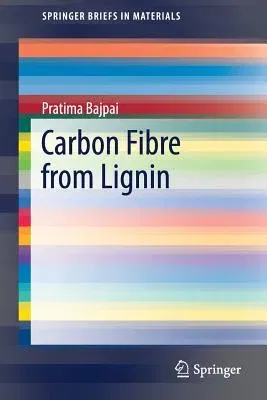Pratima Bajpai
(Author)Carbon Fibre from Lignin (2017)Paperback - 2017, 27 March 2017

Qty
1
Turbo
Ships in 2 - 3 days
In Stock
Free Delivery
Cash on Delivery
15 Days
Free Returns
Secure Checkout
Part of Series
Springerbriefs in Materials
Print Length
77 pages
Language
English
Publisher
Springer
Date Published
27 Mar 2017
ISBN-10
9811042284
ISBN-13
9789811042287
Description
Product Details
Author:
Book Edition:
2017
Book Format:
Paperback
Country of Origin:
NL
Date Published:
27 March 2017
Dimensions:
23.39 x
15.6 x
0.48 cm
ISBN-10:
9811042284
ISBN-13:
9789811042287
Language:
English
Location:
Singapore
Pages:
77
Publisher:
Series:
Weight:
140.61 gm

